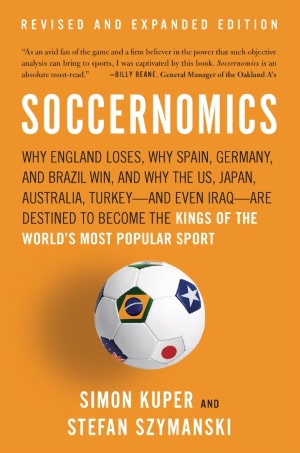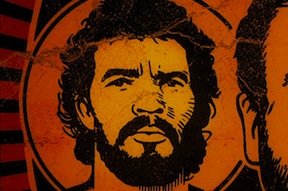Police in riot gear battle protestors in the streets of Rio de Janeiro. Aggressive slum clearance threatens favelas. Gentrification at Maracanã Stadium. FIFA exclusion zones around World Cup venues. Sound familiar?
As readers of this blog know, South Africa staged a successful World Cup in 2010, marketing the country globally to tourists and foreign investors, and uniting, albeit temporarily, a nation divided along racial and economic fault lines. South Africa’s experience was part of a larger trend, that of BRICS countries enthusiastically embracing the global mega sporting events business: from Beijing (2008 Summer Olympics) and Delhi (2010 Commonwealth Games) to Brazil (2014 World Cup and 2016 Olympics) and Russia (2014 Winter Games [Sochi] and 2018 World Cup).
Recent media coverage of Brazil’s preparations reveals growing FIFA unease with delays in infrastructure construction projects and other hosting problems. Speaking at a FIFA academic symposium last week, FIFA General Secretary Jerome Valcke expressed frustration with Brazil’s government, saying that “less democracy is sometimes better for organizing a World Cup,” according to a Reuters wire story. Valcke’s extraordinary remark confirmed some experts’ suspicions about FIFA’s underlying rationale for choosing autocratic Russia and Qatar (2022) as World Cup hosts.
Another story about 2014 World Cup stadiums was published in the New York Times Goal blog. James Young’s “White Elephant Hunting in Brazil” highlighted the importance of staging matches across the country. It concluded that while there were some troubling questions about the preparations, “Nevertheless, amid talk of delays and spiraling costs, the 2014 World Cup will at least be an event for all Brazil. In a country where the north-south cultural and economic divide is so deeply engrained, that at least is something to celebrate.”
Young’s article elicited a sharp response from Chris Gaffney (@geostadia), Visiting Professor at the Graduate School of Architecture and Urbanism at Rio’s Federal University, on his blog “Hunting White Elephants.”
“The projects associated with the World Cup were poorly planned, hastily executed (if at all) and may not serve the long-term needs of the cities or the country,” Gaffney writes. “There is no redress (as the [NYT] author suggests) of historically-situated cultural or economic divides in World Cup investment, especially when we take into consideration the astronomical sums being invested in Rio de Janeiro for the 2016 Olympics.” Gaffney concludes emphatically by pointing out that Young’s piece “does not attempt to kill White Elephants, but to make them into bichos de estimação (pets).”
On Saturday, April 27, ABC radio in Australia picked up on Gaffney’s critical blogging. Listen to Geraldine Doogue’s interview with him here.
Month: April 2013

Soccernomics has been called “the Barcelona of football books” and the “Moneyball of soccer.” On Tuesday, April 16, the Football Scholars Forum discussed this influential book with the authors Stefan Szymanski (in East Lansing, Michigan) and Simon Kuper (via Skype). One of the most important questions asked was: How does the introduction of big data and “soccer analytics” change our understanding of fútbol clubs, fans, and nations? The forum also featured intriguing comparisons between Western Europe and the United States.
Joining the authors were: Andrew Guest, Brian Bunk, Christoph Wagner, Corry Cropper, David Kilpatrick, James Dorsey, Mark Siegel, Hikabwa Chipande, Christian Orlic, Benjamin Dettmar, Peter Demopoulos, Steven Apostolov, Tom McCabe, Alex Galarza, and me.
For Twitter timeline click here.
Listen to the audio from the session here (mp3).

[WATCH: http://vimeo.com/76755353]
Doctor Socrates was futebol’s version of Che Guevara. The fifth and final episode of the superb “Football Rebels” film showcases the lanky, visionary midfielder’s role in the Corinthians Democracy movement that helped push for democratic change in Brazil under military rule in the early 1980s. “One person, one vote,” became the rallying cry of a campaign to elect a sociologist as chairman of Sao Paulo’s popular club. Contesting the election was a conservative businessman who came to embody the forces propping up the military dictatorship. Wearing a headband adorned with the words “Freedom and Justice” Socrates merged football with politics.
As his teammate Wladimir eloquently shows in the film, “Corinthians Democracy” transcended Socrates. The slogan was emblazoned on team jerseys and came to symbolize Brazilians’ dream of universal suffrage. On the final day of the 1983 season, Socrates and his teammates walked on to the pitch carrying a huge banner that read: “Win or lose, but always democracy.” Boosted by this remarkable movement started by courageous, idealistic athletes and embraced by thousands of ordinary men, women, and children, opponents of the dictatorship won provincial elections across the country and strengthened calls for direct presidential elections in Brazil. Watch. Listen. Learn.
Read my post on Socrates’s death here.
Before Pinochet’s rise to power in the September 11, 1973, coup, football clubs sustained a vigorously democratic culture, writes historian Brenda Elsey in her brilliant book Citizen and Sportsmen: Fútbol and Politics in 20th-Century Chile. Colo-Colo and Chile national team forward Carlos Caszely embodies this story. He is at the heart of episode 4 of the “Football Rebels” series on Al Jazeera (iOS users watch it here).
Brought up in a left-wing family in Santiago with its fair share of Communists, Caszely was not your typical professional footballer. He was active in the Players’ Union while many professionals saw themselves as “apolitical,” chiefly concerned with maintaining the status quo. Caszely was well known for his vocal support of Salvador Allende’s Popular Unity government: “Since I had use of my own reason,” he said, “I have liked the Left and I am not thinking of changing my ideals,” (Elsey, p. 217).
Interestingly, two months to the day after the coup, Caszely participated in what may well be the strangest match in football history. He took the field for Chile at the National Stadium in a World Cup qualifier against the Soviet Union. But the opponents were not there. Defying FIFA, the Soviets had refused to play in a stadium where more than 12,000 people had recently been imprisoned, tortured, raped, and brutalized by Pinochet’s goons. Caszely played that day because he was scared for his family’s safety. Sadly, this fear was borne out by the regime’s assault on his mother, whose direct testimony provides a dramatic highpoint in the film. As the footballer says: “I said no to dictatorship on every level: no to dictatorship, no to torture . . . So they made me pay for that with what they did to my mother.”
Caszely would go on to score 29 goals in 49 matches for Chile, taking part in both the 1974 and 1982 World Cup finals. He spent five years in Spain (1973-78) before returning to Colo-Colo. In the twilight of his career, Caszely also played for the New York Cosmos (1984) and for Ecuador’s most decorated club, Barcelona SC of Guayaquil. “Ever since I was a little boy and I started walking, holding my father’s hand, in the district where people play against a wall, against a tree, against a mound, against a big stone, against your opponent, with a football, a plastic ball, a rag ball, a paper ball, even a tin can, if there’s nothing else . . .” he always found a way to play. Despite the regime’s repression and intimidation, Caszely’s conscience and his passion for the game could not be silenced. El pueblo unido jamas serà vencido!